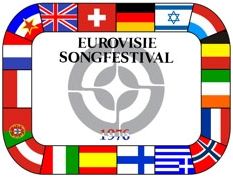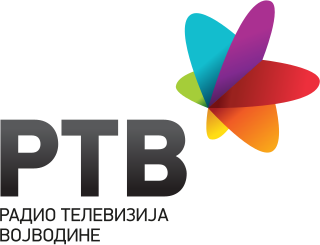An editor has nominated this article for deletion. You are welcome to participate in the deletion discussion , which will decide whether or not to retain it. |
| |||
|---|---|---|---|
| +... |
This is a list of Croatian television related events from 1975.
An editor has nominated this article for deletion. You are welcome to participate in the deletion discussion , which will decide whether or not to retain it. |
| |||
|---|---|---|---|
| +... |
This is a list of Croatian television related events from 1975.
| | This section is empty. You can help by adding to it. (January 2017) |
| | This section is empty. You can help by adding to it. (January 2017) |
| | This section is empty. You can help by adding to it. (January 2017) |

The Eurovision Song Contest 1990 was the 35th edition of the Eurovision Song Contest, held on 5 May 1990 in the Vatroslav Lisinski Concert Hall in Zagreb, Yugoslavia. Organised by the European Broadcasting Union (EBU) and host broadcaster Radiotelevizija Zagreb on behalf of Jugoslavenska radiotelevizija (JRT), and presented by Oliver Mlakar and Helga Vlahović, the contest was held in Yugoslavia following the country's victory at the 1989 contest with the song "Rock Me" by the group Riva. It was the first contest to be held in the Balkans and the only to be held in a socialist state.

The Eurovision Song Contest 1976 was the 21st edition of the annual Eurovision Song Contest. It took place in The Hague, Netherlands, following the country's victory at the 1975 contest with the song "Ding-a-dong" by Teach-In. Organised by the European Broadcasting Union (EBU) and host broadcaster Nederlandse Omroep Stichting (NOS), the contest was held at the Nederlands Congrescentrum on 3 April 1976 and was hosted by 1957 Dutch Eurovision winner Corry Brokken.
Bravo(s) or The Bravo(s) may refer to:

The Chetniks, formally the Chetnik Detachments of the Yugoslav Army, and also the Yugoslav Army in the Homeland and informally colloquially the Ravna Gora Movement, was a Yugoslav royalist and Serbian nationalist movement and guerrilla force in Axis-occupied Yugoslavia. Although it was not a homogeneous movement, it was led by Draža Mihailović. While it was anti-Axis in its long-term goals and engaged in marginal resistance activities for limited periods, it also engaged in tactical or selective collaboration with Axis forces for almost all of the war. The Chetnik movement adopted a policy of collaboration with regard to the Axis, and engaged in cooperation to one degree or another by both establishing a modus vivendi and operating as "legalised" auxiliary forces under Axis control. Over a period of time, and in different parts of the country, the movement was progressively drawn into collaboration agreements: first with the puppet Government of National Salvation in the German-occupied territory of Serbia, then with the Italians in occupied Dalmatia and Montenegro, with some of the Ustaše forces in northern Bosnia, and, after the Italian capitulation in September 1943, with the Germans directly.

Hrvatska radiotelevizija, or Croatian Radiotelevision, is a Croatian public broadcasting company. It operates several radio and television channels, over a domestic transmitter network as well as satellite. HRT is divided into three joint companies – Croatian Radio, Croatian Television and Music Production, which includes three orchestras and a choir.

The Toronto Blizzard were a professional soccer club based in Toronto, Ontario, Canada that played in the North American Soccer League (NASL).

Yugoslavia participated in the Eurovision Song Contest 27 times, debuting in 1961 and competing every year until its last appearance in 1992, with the exceptions of 1977–1980, and 1985. The Yugoslavian participant broadcaster in the contest was Jugoslavenska radiotelevizija (JRT) which selected its entrant with the national competition Jugovizija. Yugoslavia won the 1989 contest and hosted the 1990 contest.
Fabijan Šovagović was a Croatian film, television and theatre actor, and writer.

Sandra Marie Bezic is a Canadian pair skater, figure skating choreographer, producer, and television commentator. With her brother Val Bezic, she won the Canadian Figure Skating Championships from 1970 to 1974 and placed ninth at the 1972 Winter Olympics. Skate Canada announced on July 14, 2010, that she will be inducted into the Skate Canada Hall of Fame in the professional category

Radio Television of Vojvodina (RTV) is the regional public broadcaster in the Serbian province of Vojvodina, headquartered in Novi Sad. Alongside statewide Radio Television of Serbia, RTV serves as the second major public broadcaster in the country. The radio service began in 1949, and the television service launched in 1975. RTV broadcasts in multiple languages, including Serbian, Hungarian, Slovak, Romanian, and Rusyn, later adding Romani and Ukrainian.

Helga Vlahović was a Croatian journalist, producer, and television personality, whose career spanned five decades in both SFR Yugoslavia and later Croatia. She was one of the most popular television presenters in the 1980s. Throughout her career, she was also credited as Helga Vlahović Pea and Helga Vlahović Brnobić during the times she was married.
Television in Croatia was first introduced in 1956. As of 2012, there are 10 nationwide and 21 regional DVB-T television channels, and there are more than 30 other channels either produced in the Republic of Croatia or produced for the Croatian market and broadcast via IPTV, cable, or satellite television. The electronic communications market in Croatia is regulated by the Croatian Regulatory Authority for Network Industries (HAKOM), which issues broadcast licenses and monitors the market. The DVB-T and satellite transmission infrastructure is developed and maintained by the state-owned company Odašiljači i veze (OiV).
Sergio Mimica-Gezzan is a Croatian-born American film and television director. He is the son of famous Croatian film director Vatroslav Mimica. He has received three Directors Guild of America awards for his work as an assistant director and is now a regular lead director in episodic television. He has often worked with Steven Spielberg as an assistant director. He directed six episodes of the reimagined Battlestar Galactica, two episodes of Heroes, two episodes of Raised by Wolves, three episodes of The Terror, and all eight episodes of The Pillars of the Earth, the television adaptation of Ken Follett's novel of the same name.

The Esplanade Zagreb Hotel is a historic luxury hotel in Zagreb, Croatia. It was built in 1925 to provide accommodation for passengers of the famous Orient Express train, which traveled between Paris and Istanbul.
Željko Senečić was a Croatian film and television production designer, film director and screenwriter.

The Yugoslav coup d'état took place on 27 March 1941 in Belgrade, Kingdom of Yugoslavia, when the regency led by Prince Paul of Yugoslavia was overthrown and King Peter II fully assumed monarchical powers. The coup was planned and conducted by a group of pro-Western Serbian-nationalist Royal Yugoslav Air Force officers formally led by the Air Force commander, General Dušan Simović, who had been associated with several putsch plots from 1938 onwards. Brigadier General of Military Aviation Borivoje Mirković, Major Živan Knežević of the Yugoslav Royal Guards, and his brother Radoje Knežević were the main organisers in the overthrow of the government. In addition to Radoje Knežević, some other civilian leaders were probably aware of the takeover before it was launched and moved to support it once it occurred, but they were not among the organisers. Peter II himself was surprised by the coup, and heard of the declaration of his coming-of-age for the first time on the radio.

Soccer Bowl '76 was the championship final of the 1976 NASL season, between the Toronto Metros-Croatia and the Minnesota Kicks. The match was played on August 28, 1976 at the Kingdome, in Seattle, Washington. The Toronto Metros-Croatia won the match, 3–0, to claim their first North American championship.
Zvonimir "Zvonko" Lepetić was one of the leading character actors of Croatian and Yugoslav cinema and television.

This is a list of Croatian television related events from the 1960s.
This is a list of Croatian television related events from the 1980s.